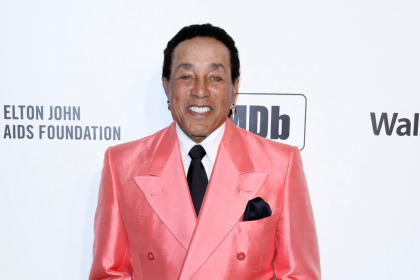Two of the biggest hits of the summer are Robin Thicke‘s “Blurred Lines” and One Direction‘s “Best Song Ever,” are at the center of controversies surrounding their originality. Fans of classic rock icons The Who balked at One Direction’s hit song due its striking similarity to the British rock band’s classic “Baba O’Riley.” Meanwhile, Robin Thicke and his collaborators Pharrell and T.I. are in the midst of a legal fight over “Blurred Lines” resemblance to Marvin Gaye‘s timeless staple “Got To Give It Up.”
The way that Thicke and One Direction handled the accusations of thievery are telling.
Once the backlash against “Best Song Ever” began once bloggers began criticizing, the song’s aping of “Baba O’Riley.” While opinion was divided as to whether the similar song intros was plagiarism or homage, the boy band’s devoted fan base (dubbed “Directioners”) went into attack mode on social media. Almost immediately, Twitter was buzzing with trending topics like #BestSongEver and #DontTouchBestSongEver, as users tweeted their support of the quintet and admonished The Who as an irrelevant dinosaur rock act. Once there was chatter of the “Best Song Ever” video being deleted by Vevo, the fans went into overdrive.
Directioners posted threatening tweets, created memes and even inexplicably recruited Justin Bieber fans to assist them in drumming up support for the song. “I WATCHED 26277 TIMES FROM MY PHONE, MY DAD’S PHONE, MY LAPTOP WITH 10 TABS LOST A LOT OF KUOTA.TOUCH IT AND YOU DIE,” tweeted one fan.
“I didnt sit at the computer for 24 hours with 20 tabs open watching it over and over for this to happen,” tweeted another.
Needless to say, the video stayed put. Also, Pete Townshend, guitarist and chief songwriter for The Who, addressed the controversy. “I like the single [and] I like One Direction,” Townshend said in a statement. “The chords I used and the chords they used are the same three chords we’ve all been using in basic pop music since Buddy Holly, Eddie Cochran and Chuck Berry made it clear that fancy chords don’t mean great music – not always. [Even] I’m still writing songs that sound like Baba O’Riley – or I’m trying to!”
The case of Thicke’s hit single was completely different.
After rumblings that the estate of Marvin Gaye could be planning to file suit against Thicke, Pharrell and T.I. over “Blurred Lines,” the trio pre-emptively filed suit in Los Angeles, asking a judge to determine that their song does not infringe on the aforementioned Gaye composition or another similar song, “Sexy Ways” by Funkadelic.
It was a shrewd business move–even if it was a bad P.R. move.
Thicke (and to a lesser extent, Pharrell and T.I.) was roundly criticized for filing a lawsuit essentially against the family of the man who had influenced so much of his music. For a white guy known for singing R&B, it may have cost him a significant chunk of his fanbase.
The trio admitted that they wanted to “evoke an era” with “Blurred Lines,” and the production borrows quite liberally from Gaye’s 1976 classic. But a smart way to avoid being taken to the cleaners over a similar-sounding song is a pre-emptive lawsuit. Because it’s hard to prove that you came up with something completely originally when it’s fairly obvious that you didn’t.
Stephen Key, author and founder of InventRight, said this regarding the Thicke controversy:
“It’s important to do your homework. If you have an idea, do a prior art search and a patent search immediately before moving forward. The question you should be asking yourself as you search through intellectual property isn’t ‘Has this been done before?’ but: ‘How can I make sure that my idea is different enough?'”
In the case of One Direction, it’s interesting that the response to accusations of plagiarism was brash and threatening; while the response in Thicke’s case was calculated and savvy–but also deferential. One Direction’s fanbase turned out to be it’s greatest defense, Thicke just relied on litigation.
Both approaches seem to have worked, at least for the time being.














